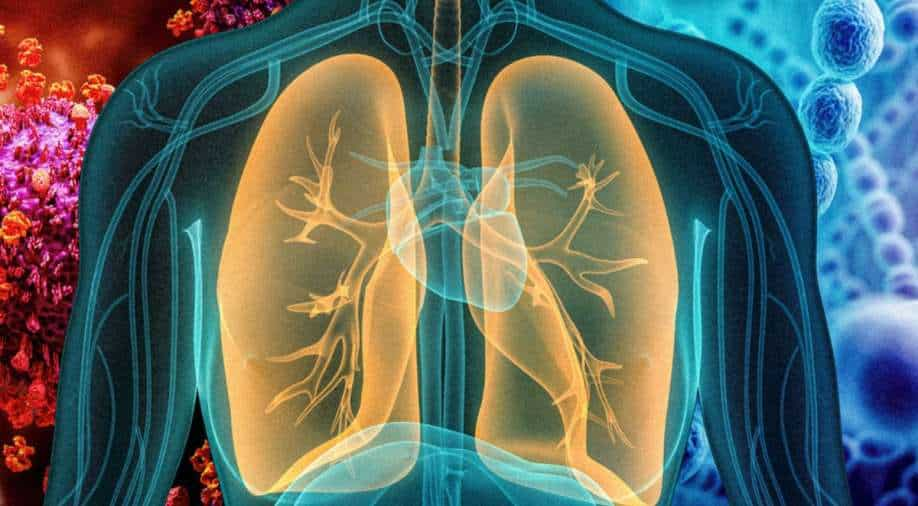Differentiating between bacterial and viral pneumonia: Treatment and management
Story highlights
Understanding the key differences between bacterial and viral pneumonia is necessary for accurate diagnosis and effective treatment. Both types of pneumonia can be severe, and early detection is important.
Pneumonia is a respiratory infection that is typically caused by various pathogens, like bacteria and viruses. Pneumonia is of two types: bacterial and viral, and understanding the differences between them is important for effective diagnosis and treatment. This article delves into the differences between bacterial and viral pneumonia and their treatment and management.
Difference between Bacterial and Viral Pneumonia
1. Causative Agents: The most fundamental difference between bacterial and viral pneumonia lies in the causative agents. Bacterial pneumonia is caused by bacteria, while viral pneumonia is caused by viral infections. Understanding this differentiation is important because it affects treatment choices.
trending now
2. Symptoms: Both bacterial and viral pneumonia have common symptoms, including fever, cough, and difficulty breathing. However, bacterial pneumonia typically causes a high fever, productive cough with yellow or green mucus, and severe chest pain, while viral pneumonia may exhibit itself with a more gradual onset and flu-like symptoms.
3. Chest X-rays: Radiological imaging can provide insights that help in determining what kind of pneumonia it is. Bacterial pneumonia often presents with lobar consolidation, while viral pneumonia exhibits more diffuse infiltrates.
4. Duration: Bacterial pneumonia comparatively progresses more rapidly, whereas viral pneumonia may have a longer incubation period and a slower onset.
5. Treatment and Antibiotics: Antibiotics are effective in case of bacterial pneumonia but have no impact on viral pneumonia. Viral pneumonia treatment usually involves antiviral medications, rest, and supportive care. Treatment of bacterial pneumonia may require hospitalisation and intravenous antibiotics.
Treatment and Management of Bacterial and Viral Pneumonia
Bacterial Pneumonia:
Treatment for bacterial pneumonia generally starts with antibiotics tailored to the specific pathogen responsible. In severe cases, hospitalisation may be needed for intravenous antibiotics and close monitoring. Patients are advised to rest, stay hydrated, and manage symptoms with fever-reducing medications. Furthermore, oxygen therapy may be administered to maintain adequate oxygen levels in the blood.
Viral Pneumonia:
Treatment for Viral pneumonia is centred on managing symptoms and providing supportive care. Antiviral medications, like oseltamivir for influenza, can be prescribed. Rest, hydration, and over-the-counter cough medicines may help in getting rid of the discomfort. Oxygen therapy is given to patients with breathing difficulties, and hospitalisation is necessary for severe cases.
Preventive Measures
Prevention is always better than cure. Here are some measures to help in preventing both types of pneumonia:
1. Vaccination:
- Bacterial Pneumonia: The pneumococcal vaccine, like Pneumovax or Prevnar, is available for adults and children to protect against the most common bacteria causing pneumonia.
- Viral Pneumonia: Annual influenza (flu) vaccination is important, as many cases of viral pneumonia are caused by influenza viruses. Furthermore, vaccines for other respiratory viruses like COVID-19 can help in reducing the risk of viral pneumonia.
2. Good Hygiene Practices:
- Handwashing: Frequently wash your hands with soap and water for at least 30 seconds, especially after being in public places and using public restroom.
- Avoid Close Contact: Avoid contact from individuals who are sick, and practise social distancing during outbreaks of respiratory infections.
3. Respiratory Etiquette:
Cover your mouth and nose with a tissue or handkerchief while coughing or sneezing to prevent the spread of respiratory droplets that may contain infectious agents.
4. Avoid Smoking:
Smoking damages the lungs and impairs the body's ability to defend against infections. Avoiding smoking or getting exposed to secondhand smoke to reduce the risk of pneumonia.
5. Good Nutrition and Exercise:
Maintain a healthy lifestyle to boost your immune system's ability to fight off infections. Eat a balanced diet rich in nutrients, stay physically active, and get adequate rest.
6. Environmental Precautions:
Minimise exposure to environmental pollutants and toxins, like air pollution and hazardous chemicals, which can impair the respiratory system's defences.
7. Get Regular Health Checkups:
Regular checkups can help in identifying and managing underlying medical conditions that may increase your vulnerability to pneumonia.
8. Travel Precautions:
When travelling, particularly to areas with known outbreaks or high infection rates, follow local health guidelines and take all necessary precautions, like wearing masks and practising good hand hygiene.
9. Personal Protective Equipment (PPE):
During pandemics or in high-risk environments, wearing appropriate PPE, like masks and gloves, provides an additional layer of protection against respiratory infections.
By following these preventive measures, you can reduce your risk of both bacterial and viral pneumonia.
To sum up, understanding the key differences between bacterial and viral pneumonia is necessary for accurate diagnosis and effective treatment. Both types of pneumonia can be severe, and early detection is important. Preventive measures significantly reduce the risk of pneumonia. If you think you have pneumonia-like symptoms, seek immediate medical help to receive the appropriate care and management. Remember, pneumonia can be a serious condition, and getting the right treatment on time can make all the difference in a patient's recovery.
(Authored by Dr Arun Chowdary Kotaru, Consultant- Respiratory/ Pulmonology & Sleep Medicine, Artemis Hospital Gurgaon)
Disclaimer: Please note that the information provided on this website is for informational purposes only and is not intended as a substitute for professional medical advice, diagnosis, or treatment. Always seek the advice of your physician or other qualified healthcare providers with any questions you may have regarding a medical condition. The content provided on this website should not be used to diagnose or treat any health problem or disease. If you have or suspect that you have a medical problem, please contact your healthcare provider immediately. Never disregard professional medical advice or delay in seeking it because of something you have read on a website.
















